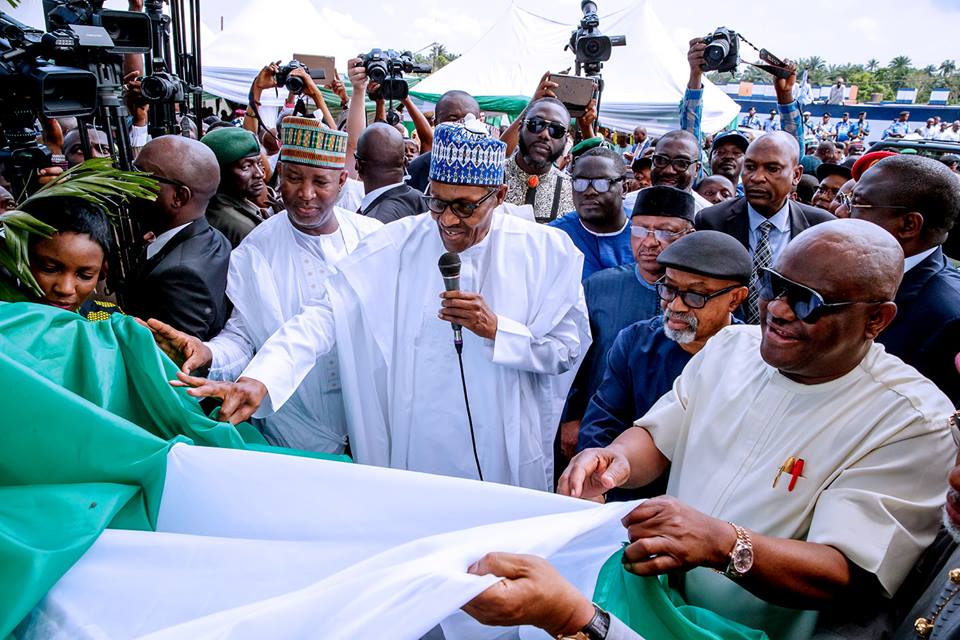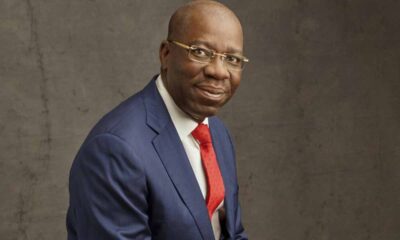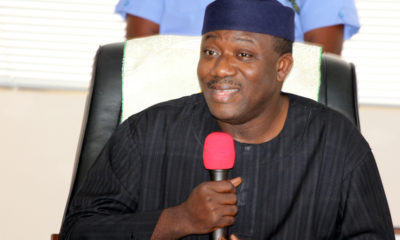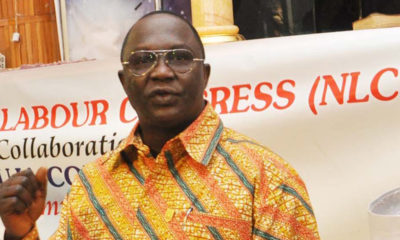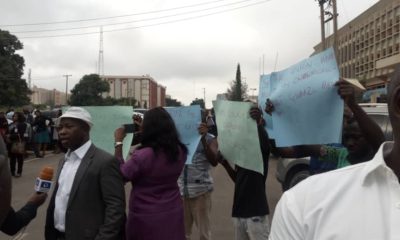- Minimum Wage: ASCSN Warns FG Against Disrupting Process
The Federal Government should not play politics with the N30, 000 benchmark agreed as the new national minimum wage for workers because the consequences would be very disastrous, the Association of Civil Servants of Nigeria warned on Tuesday.
The warning came barely a week after the submission of the report of the Ama Pepple-led tripartite committee to President Muhammadu Buhari.
The organisation also challenged the Presidency to ensure that the suspension of the Executive Secretary of the National Health Insurance Scheme, Prof. Usman Yusuf, would be used as an opportunity to ease him out of the NHIS in order to bring peace and tranquility to the troubled agency.
“It is in an effort to restore due process in some of these organisations that the ASCSN had to wage a prolonged struggle against the Executive Secretary of NHIS, Prof. Usman Yusuf, for trying to turn the scheme into a slave camp,” it said.
Speaking during the association’s National Executive Council meeting in Abuja, the National President, ASCSN, Bobboi Kaigama, said that despite repeated warnings, chief executives and directors-general had continued to run parastatals like slave camps.
According to him, the government should complete the entire process of national minimum wage before the end of 2018 so that workers who have waited for so long can begin to enjoy a new lease of life.
He said, “It is worthy of note that the single most important issue agitating the mind of an average Nigerian worker today is that of the new national minimum wage, the report of which was presented to Mr President on Tuesday, November 6, 2018.
“It is apt to state that against all odds, the tripartite committee that negotiated the new minimum wage was able to scale all hurdles and agreed to the sum of N30, 000 as the new minimum wage for the country.
“It is on this premise that I strongly want to appeal to the Federal Government to fast-track the process of enacting the new national minimum wage into law. Our expectation is that the Federal Government should be able to complete the entire process before the end of this year, so that workers who have waited for so long can begin to enjoy a new lease of life provided by the newly agreed minimum wage.
“The Federal Government is advised to avoid any action that can delay or truncate the process of enacting the new Minimum Wage Act, as the consequences of allowing that to happen can be very devastating.
“The core civil service, which is the engine room of government, is regrettably the least paid in the public service since other segments thereof have had their emoluments beefed up over the years.”
The ASCSN also protested against what it described illegal recruitment and appointment of officers, including permanent secretaries, into the civil service, which it had been battling over the years.
Kaigama said, “This ill-advised policy by some state governments has been compounded by the Federal Government when it recruited persons from outside the civil service as permanent secretaries. This is apart from the illegal extension of tenure of certain permanent secretaries and officers who are supposed to have retired from service in line with the provisions of the Public Service Rules and extant circulars, including the Constitution of the Federal Republic of Nigeria.
“We raised a memorandum and presented same at the council meeting held in Abuja last month to demand that one of the permanent secretaries illegally recruited by the Federal Government and who is now 62 years old must be compelled to exit the service. However, we were prevailed upon to step down the matter because it was already being handled administratively.
“We, therefore, reiterate our call on the Federal Government to ensure that the permanent secretary in question and others who were illegally smuggled into the service should be encouraged to quietly retire in the interest of industrial peace and harmony in the public service.
“And on no account should people be recruited from outside the civil service as permanent secretaries because the practice does not only block the chances of senior civil servants from reaching the peak of their career, but also demoralises them.”
Speaking on corruption in the country, Kaigama said it remained one of the major challenges facing Nigeria as a nation.
“This hydra-headed monster continues to loom large in our country in spite of the initial steps taken to address the menace by the present administration. Corruption in Nigeria has now assumed a very big proportion that can be described as horrendous.
“The Nigerian political class should know that there is no way this country can be inspired to greatness if this beast is not decapitated and rooted out of our system before it leads to catastrophic consequences.
“The Federal Government is therefore advised to strengthen and reposition the anti-graft agencies such that diligent prosecution of corrupt officials, total recovery of looted funds and an end to the pillaging of public treasury can be guaranteed.”

 Billionaire Watch3 weeks ago
Billionaire Watch3 weeks ago
 Startups4 weeks ago
Startups4 weeks ago
 News4 weeks ago
News4 weeks ago
 News4 weeks ago
News4 weeks ago
 Bitcoin4 weeks ago
Bitcoin4 weeks ago
 Naira4 weeks ago
Naira4 weeks ago
 Forex3 weeks ago
Forex3 weeks ago
 Treasury Bills4 weeks ago
Treasury Bills4 weeks ago
